Perhaps, another statement or other words will be used to transition the trail - MDGS, SDGs, perhaps, ZDGs. Fundamentally, evaluating these goals with a keen eye on impact, strategy, governance, and change etc. Looking at the Journey so far, and reaching the last mile especially for people being served.
The ECA Research Fellowship Community of Practice is a collaborative platform that brings together current and former ECA fellows to share knowledge, foster peer learning, and advance impactful research through sustained dialogue and interdisciplinary exchange. It underscores ECA’s dedication to cultivating an engaged network of professionals committed to Africa’s development through practical research, informed dialogue, and regional integration. Drawing from the valuable contributions of past fellows, the platform provides a space for all to share experiences, generate knowledge, and strengthen a forward-looking, collaborative community.
 HOT DISCUSSIONS
HOT DISCUSSIONS
As 2030 is fast approaching have you ever thought about whether the SDG you're working on will still be in existence post 2030?
As 2030 draws closer, the world faces an uncomfortable question: will the Sustainable Development Goals (SDGs) deliver on their promise of a just, inclusive, and sustainable future?
The SDGs were never just a checklist, they were a shared vision for humanity. Yet, with less than five years to go, progress is mixed. Some advances are undeniable, but the pace remains far too slow, especially on goals that underpin every aspect of sustainable development like water, food, and climate. To be biased, among all goals, SDG 6 has been one of the most transformative. It reframed water not as a sectoral issue, but as a cross-cutting foundation for health, gender equality, economic growth, and climate resilience. Water is now a central agenda item in global policy forums such as COP, the UN Water Conferences, and regional development summits. Governments and partners have begun to connect service delivery with long-term resource sustainability a vital step toward true water security.
However, billions still lack safely managed drinking water and sanitation. Financing gaps, governance fragmentation, and climate shocks continue to slow momentum. So the question remains and conversations have already begun on "whether SDG6 and others will make the cut”?
Migration is as old as humanity itself. Throughout history, people have migrated in search of better lives, to flee conflict or seek safety, or simply to find new opportunities. What’s often overlooked is that most migration is regular, safe, and well-organized, and usually happens within regions, driven by employment and economic opportunities. Yet, public debates and media headlines tend to focus on irregular migration, painting a limited picture. Today, migrations narratives are increasingly shaped by misinformation and politicization, which obscure the complex realities and human stories behind the movement of people. The global landscape is marked by multiple crises. Conflicts in Ukraine, Gaza, Syria, Yemen, the Central African Republic, the Democratic Republic of the Congo, Sudan, Ethiopia, and Myanmar continue to fuel displacement. At the same time, climate- and weather-related disasters, in countries such as Pakistan, the Philippines, China, India, Bangladesh, Brazil, and Colombia, have forced millions to leave their homes (McAuliffe and Oucho, 2024). According to the United Nations, around 281 million people are international migrants, representing 3.6% of the world’s population. Meanwhile, displacement continues to surge in 2022, the global number of forcibly displaced people reached 117 million, including 71.2 million internally displaced persons. The number of asylum-seekers also rose sharply, from 4.1 million in 2020 to 5.4 million in 2022, an increase of over 30% (McAuliffe and Oucho, 2024).
Migration is not just a statistic; it’s a story of resilience, adaptation, and humanity.
How can we promote a more balanced and fact-based conversation about migration, one that recognizes both its challenges and its contributions?
Reference McAuliffe, M. and L.A. Oucho (eds.), 2024. World Migration Report 2024. International Organization for Migration (IOM), Geneva
Dear colleagues,
I’m pleased to share with you my latest piece published on WEF Stories: How GovTech in Africa can unlock inclusive governance.
Visit => https://www.weforum.org/stories/2025/09/govtech-africa-inclusive-digital-governance/
In this article, I reflect on how Africa can harness GovTech, through digital public infrastructure, inclusive design, and regional collaboration, to make governance more transparent, efficient, and citizen-centric.
Reading and writing on this topic also made me think of UNECA’s unique position: with our convening power, regional expertise, and partnerships, how can UNECA further support African countries in scaling GovTech for inclusive governance?
I would very much welcome your thoughts and perspectives, particularly how our ongoing initiatives in digital transformation, SMEs, and policy advisory could be aligned with this agenda.
Dear fellow Fellows.... We’re almost six months into the fellowship, and I’ve been reflecting: beyond our division work and research projects, how can we make the most of this experience? What are some strategic ways to position ourselves for growth, networks, and impact during the rest of the year? Looking forward to hearing your thoughts.
As Malawi votes AGAIN tomorrow since multi-democracy in 1994 - it still remains one of the poorest countries in Africa. This is albeit absence of any conflict. The common trend always appears for electives to focus on being re-elected in the next elections, whose motive could bring short term gains that often trade-off with longer term sustainable benefits. One could argue that, uncertainty of re-election of elected presidents is what causes mis-prioritization of development efforts, poor governance, and corruption.
Indeed democracy has its benefits, but does it outweigh its costs for African countries? - specifically asking..."what could have happened if there was no democracy, and presidents were secure about their presidency"?
If yes, then how do we mitigate poor governance that comes from insecurity of re-election?
From September 1-5, 2025, I had the privilege to attend the Africa Food Systems (AFS) Forum that was held in Dakar, Senegal. This forum was also attended by Mr. Claver Gatete, the Under Secretary of the United Nations and Executive Secretary of the Economic Commission for Africa. Hosted under the leadership of H.E. Bassirou Diomaye Diakhar FAYE, President of the Republic of Senegal, the AFS 2025 Forum brought together public and private sector leaders, policymakers, researchers, development partners, and youth champions around the theme: “Africa’s Youth Leading Collaboration, Innovation, and Implementation of Agri-Food Systems Transformation.” Several issues were discussed during the forum that are relevant to my fellowship research on agri-food systems and job creation in Africa. Ultimately, I managed to take a few points that I would like to share with you all:
-Africa has favourable conditions necessary to produce enough food for its rapidly growing population. Nevertheless, Africa remains one of the world’s food-insecure regions.
-Africa imports approximately 50 billion worth of food annually. This suggests the need to transform AFS to ensure food security and food self-sufficiency.
-The agri-food system in Africa is one of the largest employers. However, many people are employed at the farm level. If well transformed, the agri-food sector helps reduce the unemployment rate by generating employment opportunities in other parts of the agri-food value chain, such as processing and distribution.
-Certain social groups, including youth, women, and refugees, are often left behind in the transformation of agri-food systems. It is important to place these marginalised social groups, particularly youth, at the centre of agri-food systems transformation.
-Many policies and commitments have been made to transform food systems for better jobs and food security in Africa, yet many of them have not been effectively put into implementation. This suggests the need to transition from theory to practice to ensure the development of sustainable and resilient agri-food systems.
Generally, African youth are required to take part in agri-food systems transformation to enhance the continent’s food security and food sovereignty, as well as create jobs along the agri-food value chains. However, a key question is:
Are young people ready to participate in transforming agri-food systems? If not, who will feed Africa in the next few decades? If you have any inputs, I would be glad to hear from you.Thanks
As a Researcher and Fellow, I am increasingly reflecting on the critical role of Administration and Human Resource Management in shaping the efficiency and impact of our work. Beyond processes and policies, HR is about nurturing talent, fostering diversity, and creating an enabling environment for innovation.
Yet, a key question remains: how can international organizations like UNECA balance the need for efficiency with the imperative to invest in people’s growth and well-being?
I would love to hear thoughts and experiences from colleagues and peers: what innovative HR practices have you seen that truly empower teams and enhance institutional performance?
Kenya and Uganda have agreed to eliminate all tariff and non-tariff barriers hindering trade between the two countries, in line with the East African Community (EAC) treaty and protocols. In a joint communique issued in Mbale, Uganda, on Saturday, Investments, Trade and Industry Cabinet Secretary Lee Kinyanjui and his Ugandan counterpart, General Wilson Mbasu, pledged to clear truck congestion at key cross-border points, including Malaba, Busia, Suam, and Lwakhakha, to ensure the smooth flow of goods, services, and people.
Question: How do you think these measures will impact trade efficiency and economic growth in our region over the next year?
In Africa, we know how to turn a funeral into a festival, a traffic jam into a business seminar, and a power cut into a poetry night. But can we turn mindset into measurable development? That is the real test.
We often treat development like it is something handed to us by outsiders, but what if development isn’t a project or a policy? What if it’s an attitude?
In a small village in Ghana, a chief got tired of waiting for government to fix a borehole. So he taxed himself. Then the community. One month later, clean water. No consultants. Just attitude.
We have graduates fluent in theory but allergic to tools. Roads with ribbon-cutting ceremonies but no drainage. Innovation gets talked about more than it gets lived. Why? Because we have outsourced responsibility!!!
Real development starts small: refusing to litter, resisting bribes, showing up on time. It is in the market woman sending her daughter to school and the boda rider following traffic rules even when no one is watching.
Africa doesn’t lack potential; we lack the consistent attitude to unlock it.
If we want lasting change, let’s stop waiting for “the system.” Let’s be the system.
Because in the end, development isn’t about big money; it’s about bold mindsets!
With the upcoming Climate Change and Development Africa (CCDA) Conference and the Africa Climate Summit on the horizon, we eagerly anticipate the crucial conversations and collaborations that will take place. There is no better time to unite and address the pressing challenges of our changing climate. As we gear up for the events, let's remember the importance of collaboration and innovation in tackling the climate crisis.
This year's theme, embodies the determination and collective responsibility required to drive tangible change in water resources management. It is essential to move beyond dialogue and emphasize the importance of implementing water-focused climate adaptation measures.
Between I hope you have all registered for both events!! Let’s all join the conversation! By sharing our expertise, experiences, and innovative solutions, we can build a more sustainable and resilient world for generations to come.
I recently published an article on ICTworks titled The Urgency of E-Government Resilience, reflecting on the recent fire at Cairo’s Ramses Central Exchange and the lessons it offers for our region. The incident, which paralysed critical services in Egypt, highlights the dangers of over-centralised systems and the urgent need to build resilience into our digital governance frameworks from the very start.
In the piece, I argue that resilience is not just about technical backups; it is about designing distributed architectures, fostering institutional preparedness, and ensuring continuity of public services even in times of crisis. For us in North Africa and across the ECA region, this conversation feels especially relevant given the fragility of infrastructure and the growing reliance on digital platforms to deliver essential services.
I’d love to hear your thoughts: How can we, as a community of Fellows, translate these lessons into concrete strategies for our countries and region? Should we be pushing for regional redundancy, shared infrastructure, or stronger policy frameworks on digital resilience? And what role can institutions like UNECA play in facilitating this?
Your reflections will be invaluable, not only to enrich the conversation but also to guide how we might collectively shape a more resilient digital future for Africa.
The link for the full article: https://www.ictworks.org/urgency-egovernment-resilience/
I am particularly excited about the recent Drive for Data-Powered Social Protection Systems held in Livingstone, Zambia; an initiative that reflects UNECA’s ongoing commitment to strengthening the evidence base for social protection across the continent. It is projects like these that fuel my eagerness to continue contributing to solutions that leave no one behind, especially in a region where poverty is multifaceted and requires innovative, data-driven interventions.
Being part of this process by supporting research, shaping narratives, and contributing to policies aimed at transforming lives has been both an inspiring and humbling experience. I remain passionate about the possibilities that lie ahead, not just for my personal growth, but for the future of Africa where policies are powered by data, and every person matters.
You can read more about the Livingstone initiative here: https://intranet.uneca.org/ecanews/livingstone-hosts-drive-data-powered-social-protection-systems
*** “THE NEXT LOGICAL PROGRESSION”** “Landmark” “Milestone, “Ambitious” “Comprehensive agreement” “Game changer” “” are but a few of the descriptive words and phrases that have been used in the regional integration conversation and discussions, to describe the relevance and transformative nature of the African Continental Free Trade Area (AfCFTA) in promoting intra-African trade. For example, UNECA’s Economic Report on Africa (2025) highlights that the accelerated implementation of the AfCFTA could increase Africa’s GDP by US$141 billion and boost intra-African trade by US$276 billion. This expected positive impact is further propelled by the current trade developments that are calling for the Continent to accelerate the implementation of the agreement in a bid to open-up alternative markets for sectors that have been severely affected by the recent trade tariffs by the US. It is against this scenario that a critical question arises, should Africa limit its focus on the creation of a Continental Free Trade Area or begin efforts to chart a path towards becoming a customs union or even common market?
The answers or some of the answers to this question are in the 11th edition of the Assessing Regional Integration in Africa “Delivering on the African Economic Community: Towards an African Continental Customs Union and African Continental Common Market”. This theme reflects the next logical progression for the Continent after fully implementing the AfCFTA. ARIA XI, will be launched soon, during the 7th Mid-Year Coordination Meeting of the African Union, Regional Economic Communities and Regional Mechanisms, in Malabo, Equatorial Guinea, 12 July 2025
It is exciting to witness ECA once again taking the lead in driving a forward-looking conversation, one that not only addresses the challenges and insights related to regional integration but also explores the theoretical foundations of a Customs Union and Common Market, along with the institutional and governance capacities needed to realize them. Much like its early efforts in the early 2000s that helped initiate the journey toward the African Continental Free Trade Area—which is now a reality. ECA is setting the stage for Africa’s next phase of integration.
Will share a link for the ARIA XI Report- for an in-depth reading- when it is available. ERA 2025 https://www.uneca.org/economic-report-on-africa-2025
Over the last few days, I’ve been participating in a course by ITU Academy on Climate Change and the Mobile Industry. The course is designed for telecom policymakers and regulators, especially in emerging and developing markets, to explore how the sector can respond to the climate crisis in a meaningful way.
As part of our learning, we engaged with The Climate Game, an interactive simulation developed by The Financial Times, in partnership with Infosys, and grounded in real science using models from the International Energy Agency (IEA) and the MAGICC climate model.
While the game is not a perfect simulation, it challenges us to make policy decisions, invest in technologies, and balance development priorities, all in the race to reach net zero by 2050. It was an eye-opener and a reminder of how difficult, yet urgent, these choices are.
Try the game here: https://ig.ft.com/climate-game/
I’d love to hear from fellow professionals, especially those working in and with Africa:
What results did you get? What surprised you the most? How do you think we can accelerate climate action in African countries? What role should telecom, tech, and policy innovation play in this?Let’s learn from each other, drop your thoughts in the comments section!
Internet shutdowns are often seen as political tools, but their economic toll is just as severe. In my latest piece for the World Economic Forum, I explore how these disruptions are quietly draining Africa’s economy, threatening digital trade, SMEs, and long-term development.
👉 Read the full article here: https://www.weforum.org/stories/2025/06/how-internet-shutdowns-drain-african-economies/
What does it mean when the internet goes dark, not just for freedom of expression but also for livelihoods and markets? Here, I unpack recent data, real examples, and legal precedents and offer pathways forward.
I’d love to hear your thoughts; feel free to comment, share, or reach out.
As the Seville Conference on Financing for Development starts today, I can’t stop thinking about one truth: Africa must stop adapting itself to finance and start shaping finance to serve its own future.
It is not enough to ask “how do we bring in more money?” We must ask: who decides where it flows? Into what sectors? Under what terms? With what vision?
The money must meet the mission!!!!!
The continent does not need just more aid or more loans. It needs better-aligned, strategic, long-term investment that respects its agency and accelerates its ambitions.
This is the kind of shift I hope Seville 2025 will ignite. Because when Africa leads its own development story, finance will follow, not the other way around.
There is a lot of talk on how (possibly) Africa could benefit from the reduced (or eliminated) tariffs on African Imports.
However, do you think Africa is ready to benefit from this? and to what extent? Considering quality requirements conditions.
Is this another missed opportunity or an information shock that could induce structural transformation( labour shifting from low value-added to higher value added sectors)?
Dear colleagues and fellows,
As many of you closely follow the evolving digital policy landscape, I wanted to share key reflections from the recently adopted Cotonou Declaration on Accelerating Africa’s Digital Transformation, which emerged from the African WSIS+20 Review Summit (May 2025, Benin).
This declaration stands out as one of Africa's most structured, comprehensive, and forward-looking commitments to digital transformation in recent years. Some core elements I believe deserve special attention:
Bridging Infrastructure Gaps: Ambitious targets to achieve 95% broadband coverage in leading countries by 2030, while tackling the persistent issue of high mobile data costs across the continent.
Moving Beyond Digital Access: A shift towards advanced capacity-building, integrating AI, IoT, Big Data, and Quantum Computing into national curricula, addressing both foundational and frontier digital skills.
Strengthening Governance & Regulation: Clear calls for developing adaptive AI governance frameworks, cross-border data harmonisation, and robust cybersecurity standards.
Commitment to Measurable Progress: The introduction of an Africa Digital Performance Index and Ministerial Peer Reviews to ensure transparency, benchmarking, and shared learning across Member States.
Linkage to Global Processes: The Declaration explicitly reinforces Africa’s engagement with WSIS, the IGF, and the GDC, ensuring Africa’s voice remains influential in shaping global digital norms.
In my view, this is not just a declaration, it is a blueprint for operationalising Africa’s digital ambitions, with a heavy emphasis on differentiated targets recognising our continent’s diversity in digital maturity.
I would love to hear your perspectives:
How do you see this Declaration influencing the national and regional policy work you are involved in?
How do you envision Member States and the African Union translating these ambitious targets into concrete action and accountability frameworks?
Are you actively following or contributing to any UN processes related to digital governance (WSIS+20, IGF, Global Digital Compact)?
I believe cross-sharing between these tracks is becoming increasingly essential, and as fellows within the UN ECA community, we are well-positioned to contribute to that dialogue.
Let’s keep this conversation active; Africa's digital future depends on how effectively we move from commitments to coordinated action.
Dear Fellows,
I’m excited to share that my recent peer-reviewed paper has just been published: "Drivers and Barriers in Libya’s E-Government Implementation"
The paper explores how technological, organizational, environmental, and user-acceptance factors shape the progress of e-government initiatives in Libya, drawing from a combination of theoretical models and fieldwork conducted with multi-stakeholders. While focused on Libya, many of the lessons may be relevant to other countries across Africa and beyond as we all navigate digital transformation in different contexts.
The full paper link here, for anyone interested.
But beyond sharing the publication, I wanted to open a small conversation with you all:
How is e-governance evolving in your respective countries or institutions? Have you had experience publishing your own work, whether through conferences, journals, or policy papers? Do share it. What challenges or lessons have you encountered in getting your work published and shared?I believe many of us are dealing with overlapping themes, and it would be great to exchange ideas, experiences, and even explore possible collaborations in the future. Let’s continue to build on the great momentum of the UNECA Fellowship network!
Looking forward to your thoughts and experiences.
Hello everyone, I would love to hear your experiences from your respective countries about innovative trends in transport digitalization. Any information you have on even one of these topics will greatly enhance my understanding of these critical issues and support my current work in my division.
Please share information on the following topics:
Apps for Ride Safety: What applications are being used to enhance safety in transportation? Traffic Management Solutions: Are there any innovative tools or systems in place to manage traffic effectively? Vehicle Control and Inspection: How is vehicle compliance monitored and enforced in your region? Mobility Services (e.g., Uber): What ride-hailing services are prevalent, and how do they operate in your area? Public Transport Ticketing Solutions: What systems are in place to facilitate ticketing for public transport? Asset Management: How is asset management handled in your transport sector? Smart Charging for Electric Vehicles: Are there any initiatives for charging electric vehicles efficiently? Port Information Systems: How are ports utilizing technology to improve operations? Human Resource Innovations: What advancements are being made in areas like driver-less parking?Please share the app names using to digitalize for the above lists.
Thank you!
 ACTIVE FELLOWS
ACTIVE FELLOWS
IreneonyanchaJoin Date:
MichaelAtagbuziaJoin Date:
dr.iselotlegengJoin Date:
chris.ngugabeJoin Date:
arogundadesodiq8Join Date:
stadadjeuJoin Date:
syahukahildaJoin Date:
valentinebimeJoin Date:
a.shwehdyJoin Date:
ndimbogkJoin Date:
musekerajJoin Date:
jennifermongboJoin Date:
aguimaJoin Date:
maryomololaJoin Date:
cassandrakoumisJoin Date:
ndinelaoiitumbaJoin Date:
thandiletanzJoin Date:
joobastouJoin Date:
fchigaruJoin Date:
Birika_NaomiJoin Date:
banengaichanelleJoin Date:
koutchognaJoin Date:
bezawittemeJoin Date:
ibroassibaJoin Date:
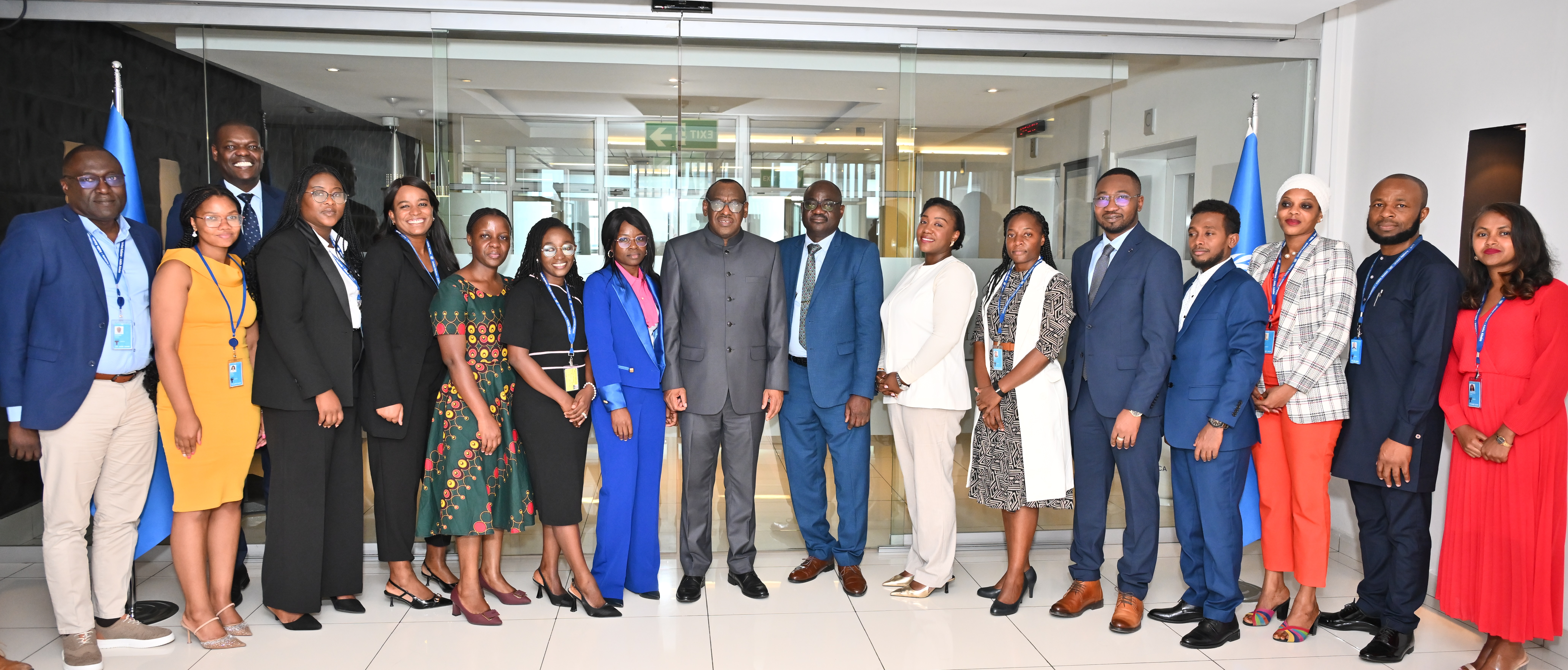
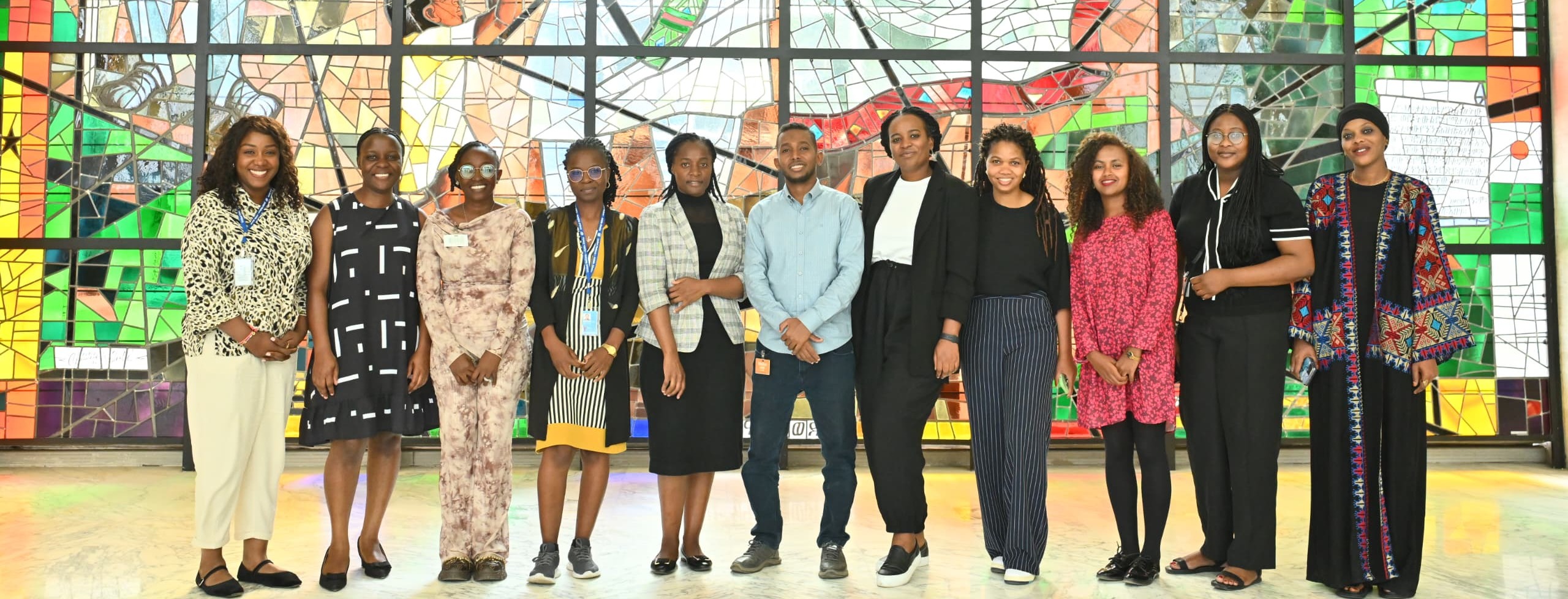
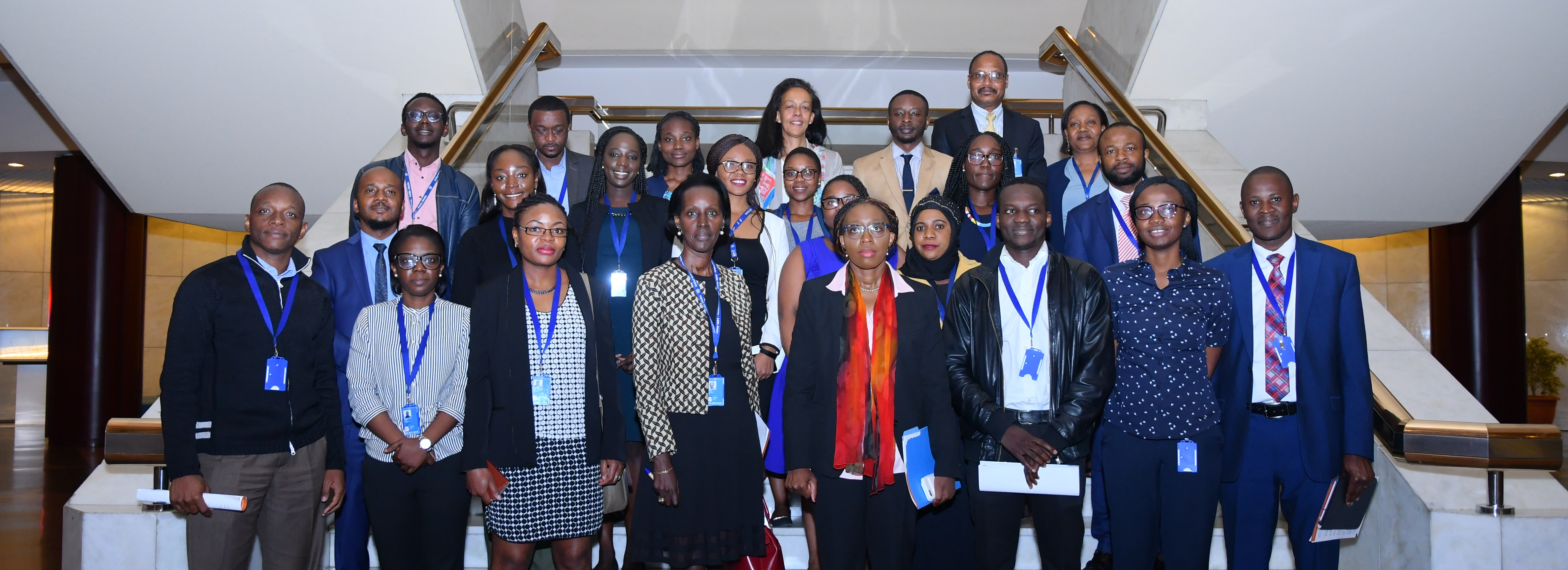
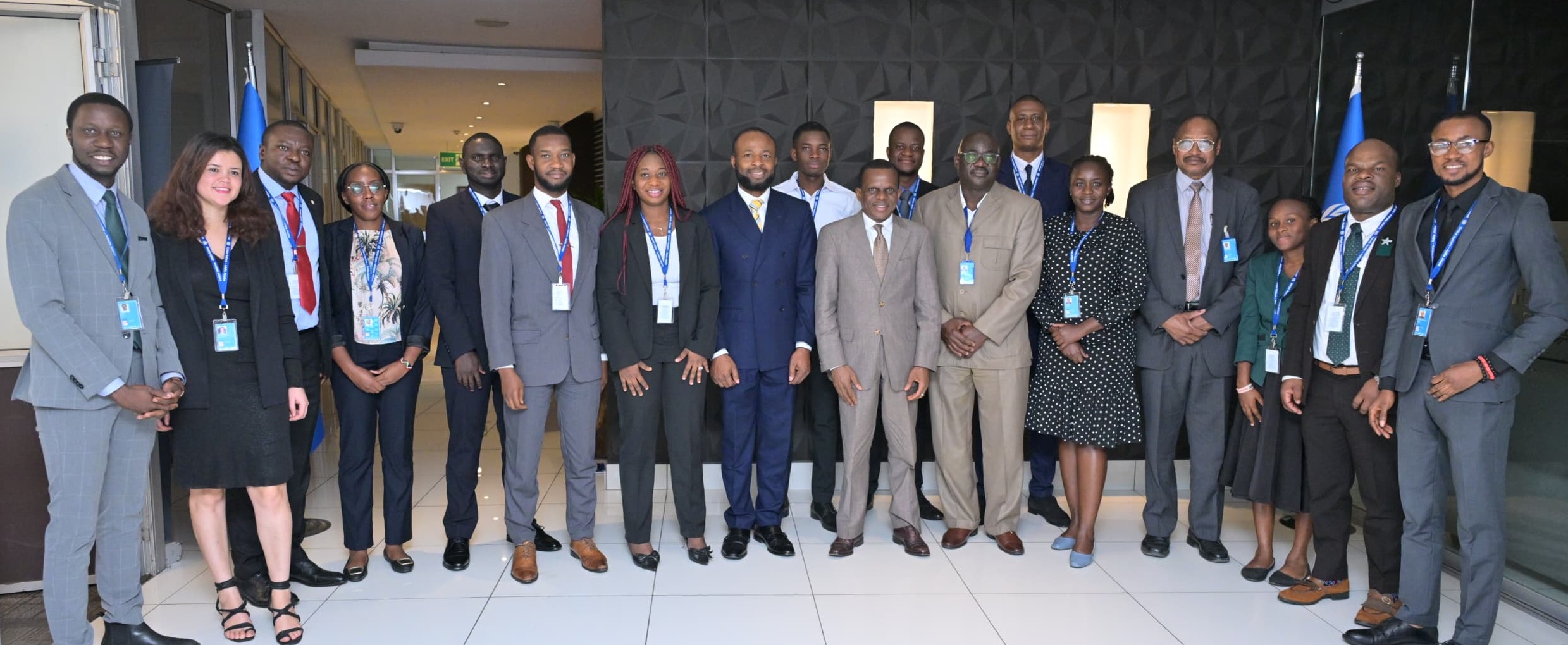
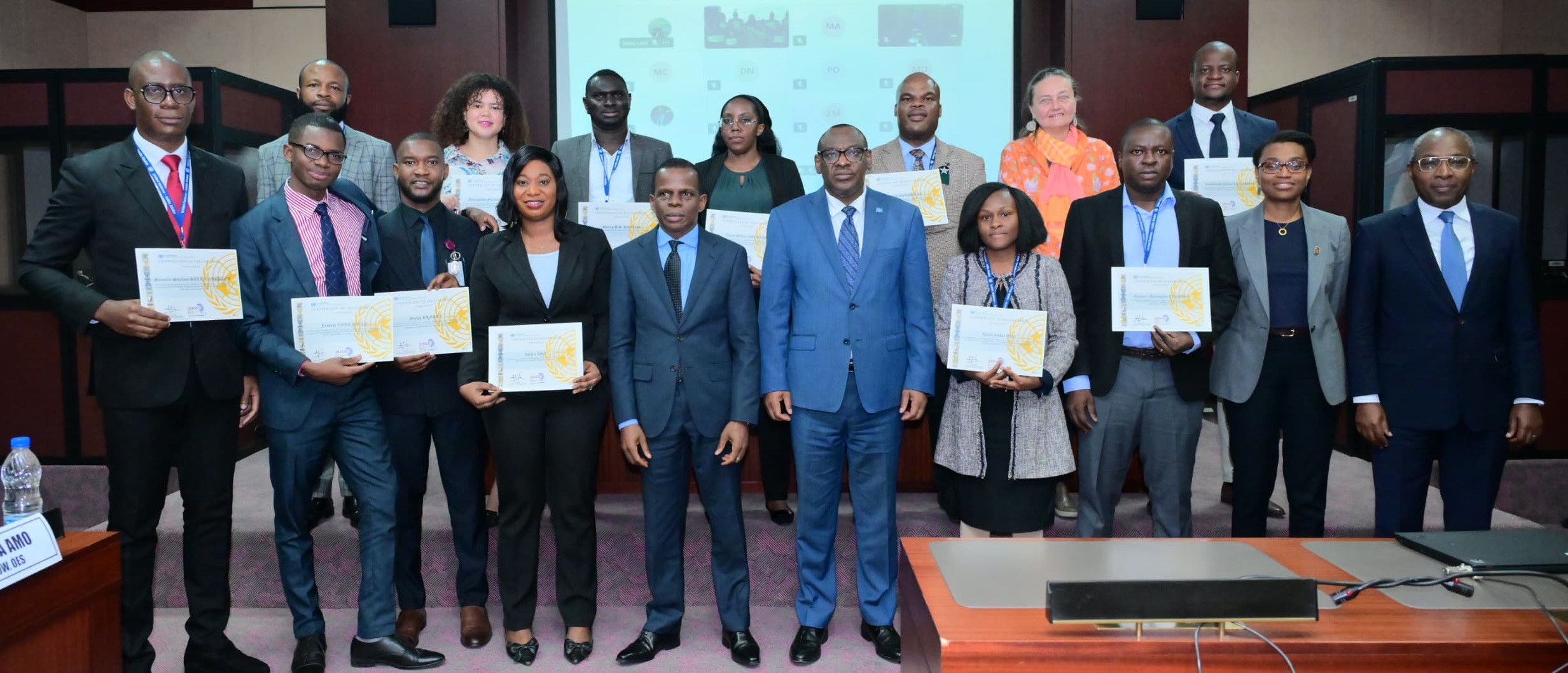
 FELLOWSHIP SECRETARIAT
FELLOWSHIP SECRETARIAT